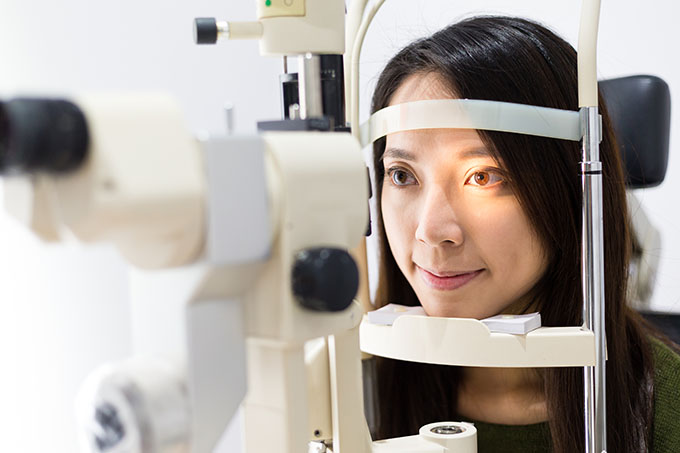What are floaters and spots?
Floaters (often called floating spots) are small, semi-transparent cobwebs, specks or squiggles that appear in your field of vision. They are actually small particles within the gel inside the eye (called vitreous humour) that become noticeable when they fall within the line of sight.
They move when you move your eyes, but tend to drift or lag behind your eye movements. They may also appear along with flashes of light.
Does everyone have floaters?
Almost everyone sees a few floaters at one time or another. They can occur more frequently and become more noticeable as you grow older. If you notice a sudden change in the number or size of floaters, you should contact your optometrist right away. This is to ensure they are not the result of a more serious problem, such as a retinal detachment.
What causes floaters?
The inner part of your eye is made up of a clear, jelly-like fluid known as the vitreous. Occasionally, small flecks of protein and other matter become trapped in the vitreous during the formation of the eye before birth and remain there.
New floaters are caused by the deterioration of the eye fluid or its surrounding structures as we age or by certain injuries or eye diseases.
What do floaters look like?
Floaters are generally translucent specks of various shapes and sizes. They may also look like bugs, threadlike strands or cobwebs within the eye. Since they are within the eye, they move as the eye moves and seem to dart away when you try to look at them directly.
Can these floaters cause blindness?
Most floaters are normal and rarely cause problems. However, new or a sudden increase in floaters can be indications of more serious problems, such as a retinal hole, tear or detachment. If you see sudden change in the size, shape, and number of floaters – almost as if you are being “showered” in them – please see an Optometrist immediately.
How are floaters detected?
As part of a comprehensive eye examination, your optometrist will thoroughly evaluate the vitreous and retina of your eyes. He or she may use eye drops to dilate your pupils to make them larger. Then look inside your eye with instruments called a biomicroscope and an ophthalmoscope to examine the health of the inside of your eyes. Your optometrist will observe the floaters within your eye, as well as ensure a retina problem has not occurred.
Source:
“Floaters and spots” Ontario Association of Optometrists, Retrieved 13 June 2019. <https://www.optom.on.ca/OAO/Patients/Library/Floaters_and_spots.aspx>

